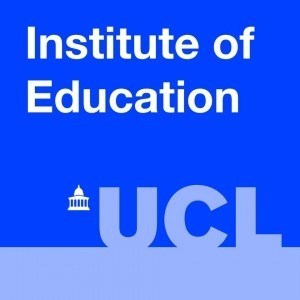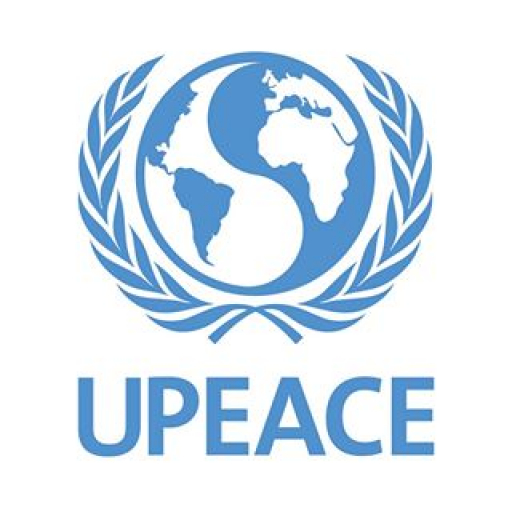Photos of university / #linkopings_universitet
Gender Studies – Intersectionality and Change at Linköping University is an interdisciplinary master's programme designed to explore the complex ways in which gender intersects with other social categories such as race, ethnicity, class, sexuality, and ability. This programme aims to provide students with a comprehensive understanding of how gender identities and inequalities are constructed, negotiated, and challenged within various social, cultural, political, and economic contexts. The curriculum combines theoretical perspectives from feminist theory, critical gender studies, and intersectionality studies with empirical analysis to foster a nuanced comprehension of gender issues globally and locally. Students will engage with a diverse range of topics including gendered power dynamics, social justice, human rights, policy analysis, and activism, enabling them to critically analyze contemporary societal challenges related to gender and equality. The programme emphasizes developing analytical skills, critical thinking, and the ability to apply concepts to real-world issues through case studies, research projects, and collaborative learning experiences. Graduates will be equipped to work in academic, non-governmental, governmental, and international organizations committed to promoting gender equality and social justice. The programme’s interdisciplinary approach encourages students to challenge normative assumptions and develop innovative solutions for social change. By fostering a reflective and analytical mindset, the programme prepares students for careers in research, policy-making, advocacy, education, and beyond. Through its focus on intersectionality, the programme ensures that students appreciate the diversity of experiences and identities shaping contemporary gender dynamics, and the need for inclusive and intersectional approaches to social transformation. The unique combination of theoretical knowledge, practical skills, and a commitment to social change makes this programme at Linköping University a vital step for those passionate about understanding and transforming gender relations in society.
The Master's Programme in Gender Studies — Intersectionality and Change at Linköping University offers an engaging and comprehensive exploration of gender as a central aspect of social life and power structures. The programme aims to deepen students' understanding of how gender intersects with other social categories such as race, class, sexuality, ethnicity, and ability, shaping individuals' experiences and societal dynamics. Throughout the course, students will examine both theoretical frameworks and empirical methods to analyze how gendered practices influence and transform various social institutions, including family, education, health, media, and politics. The curriculum emphasizes critical thinking and encourages students to challenge traditional narratives and assumptions about gender, promoting an inclusive perspective that recognizes diverse identities and experiences. Participants will engage with current debates on gender equality, social justice, and policy development, preparing them for careers in academia, NGOs, governmental organizations, or as activists and advocates for social change. The programme also highlights the importance of intersectionality as a tool to understand the complex layers of identity and oppression, fostering a nuanced approach to achieve social transformation. Students will have opportunities to conduct independent research, participate in seminars, and collaborate with faculty renowned for their expertise in gender theory, sociology, anthropology, and related disciplines. By the end of the programme, graduates will possess the analytical skills, theoretical knowledge, and practical insights needed to contribute meaningfully to discussions and initiatives aimed at promoting equality and social justice across various sectors. This interdisciplinary approach ensures that students are well-equipped to understand and influence the ongoing struggles for gender equality and social change in a diverse and interconnected world.
The Gender Studies — Intersectionality and Change program at Linköping University is designed to provide students with a comprehensive understanding of gender issues, power relations, and social change from an intersectional perspective. The program emphasizes critical analysis of societal structures, ideologies, and policies affecting gender and other social categories such as ethnicity, class, sexuality, and disability. Students will explore historical and contemporary perspectives on gender and intersectionality through interdisciplinary approaches, including sociology, anthropology, political science, and cultural studies. The curriculum includes core courses in gender theory, feminist movements, and social justice, along with specialized modules on intersectionality, policy analysis, and activism. Practical components include case studies, project work, and potential internships, aiming to develop analytical skills and social engagement. The program encourages students to critically evaluate existing research and to contribute to ongoing debates about gender equality, inclusion, and social transformation. Assessment methods incorporate essays, presentations, and research projects, fostering both theoretical knowledge and practical application. The program also addresses current challenges faced by marginalized groups, preparing graduates for careers in academia, NGOs, advocacy, policy-making, and consultancy roles related to gender and diversity issues. To complete the program successfully, students are expected to engage actively in seminars and group work, demonstrate critical thinking, and contribute original insights into discussions. The interdisciplinary nature of the course allows students to tailor their learning experience according to their interests, with options to specialize in areas such as gender and cultural studies, gender policies, or social activism. Overall, the program equips students with the analytical tools and ethical considerations needed to understand and influence social change concerning gender and intersectionality at local, national, and global levels.
The Gender Studies — Intersectionality and Change program at Linköping University offers a comprehensive overview of the various funding options available to students pursuing this degree. Typically, tuition fees for international students are applicable, and these can be covered through a range of scholarships and financial support programs provided by both the university and external organizations. Linköping University participates in national and international scholarship programs, which aim to support students based on merit, financial need, or targeted criteria such as citizenship or field of study.
Swedish students enrolled in the program are usually eligible for government-funded student grants and loans administered by the Swedish Council for Higher Education (CSN), which provide financial assistance to cover living expenses and study costs. Additionally, the university encourages students to seek external funding opportunities such as Erasmus+ mobility grants, which facilitate student exchange and study abroad experiences, thereby reducing overall costs while enriching the academic experience.
Students are also advised to explore scholarships offered by private foundations and international bodies focused on gender studies, human rights, and social justice topics. Many of these scholarships are competitive and may require a formal application and demonstration of academic excellence or a commitment to social change. The university’s financial aid office provides detailed guidance on available funding sources, application procedures, and deadlines, ensuring students are well-informed about how to finance their studies effectively.
Furthermore, some students may choose to supplement their funding through part-time work opportunities available on or around the campus, in compliance with visa regulations for international students. These employment options not only help with living expenses but also offer practical experience relevant to their field of study.
In summary, funding for the Gender Studies — Intersectionality and Change program is accessible through a combination of university scholarships, government grants, external funding sources, and part-time employment. The university’s financial support services are dedicated to assisting students in identifying suitable funding options and navigating the application process to facilitate successful completion of their degree.
The Bachelor's or Master's program in Gender Studies — Intersectionality and Change at Linköping University is designed to explore the complex ways in which gender intersects with various social categories such as race, ethnicity, class, sexuality, disability, and age. The program aims to provide students with a comprehensive understanding of gender theories, social justice issues, and methods for analyzing gendered power structures within different cultural and social contexts. Students will examine historical and contemporary challenges faced by marginalized groups, and critically analyze policies and societal norms that perpetuate inequality. The curriculum typically includes courses on feminist theory, queer theory, postcolonial studies, and intersectionality, encouraging students to engage with multidisciplinary perspectives. The program emphasizes the development of critical thinking skills, qualitative and quantitative research methods, and the ability to apply theoretical insights to real-world issues. Graduates can expect to acquire the knowledge necessary for careers in academia, advocacy, policymaking, and consultancy in diverse sectors such as social services, education, healthcare, and NGOs. The program is taught in English and attracts students from various countries, fostering an international and inclusive learning environment. Throughout the course, students are encouraged to participate in seminars, workshops, and research projects, which facilitate active engagement with contemporary debates on gender and social change. By completing this program, students will be equipped to analyze and challenge intersecting forms of oppression and contribute to efforts promoting equality and social justice at local, national, and global levels.








